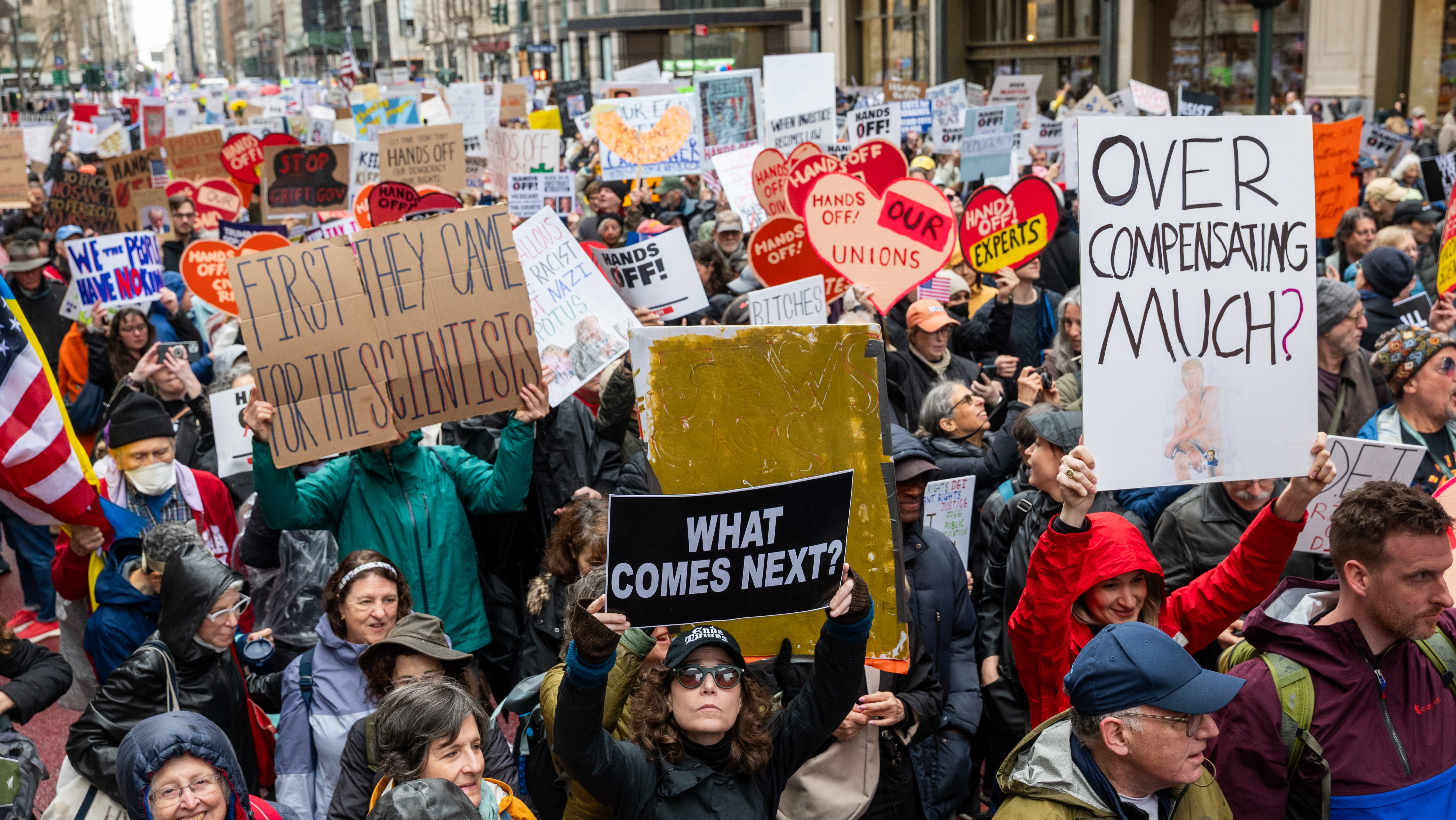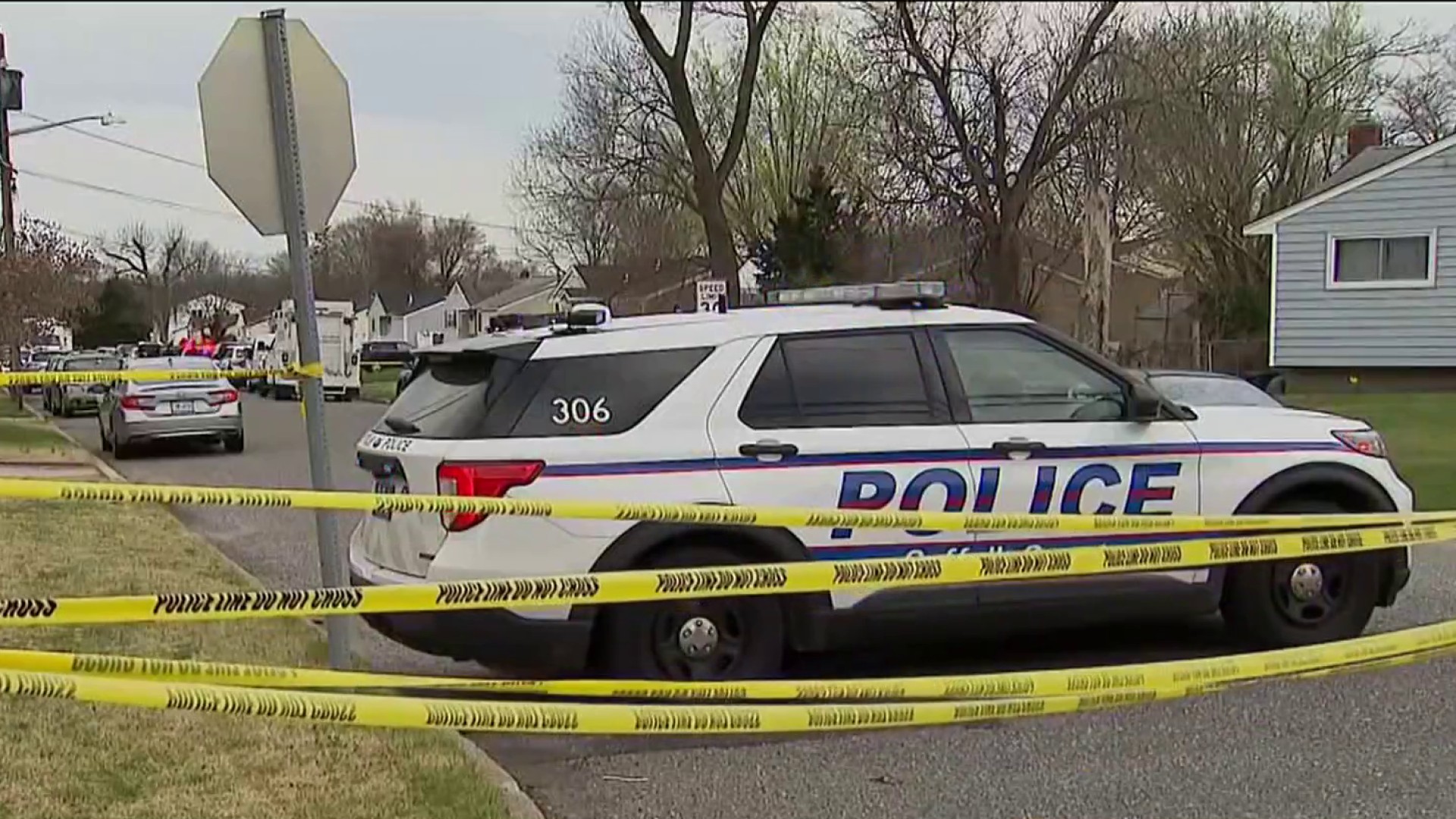A study from the University of Arizona suggests that many with mild COVID-19 cases may experience long-term symptoms.
As the delta variant rages on nationwide, there is little sign of letting down for this COVID-19 variant as nearly 75 percent of all U.S. counties are now considered “high transmission” areas, according to the CDC’s latest tracking system.
The majority of the tri-state is now considered a problem area under CDC regulation, which calls for universal indoor masking. In New York City and New Jersey, delta accounts for 83 percent of all tested positive COVID samples.
Just days away from entering the fall 2021 semester, colleges and universities across the tri-state are bracing for an in-person return with numerous precautions.
Watch NBC 4 free wherever you are
CUNY students attending in-person and hybrid classes must be vaccinated and require documentation submitted by September 14. SUNY campuses will reopen in the fall with mandatory vaccination required for all in-person students. If fully vaccinated, students may conduct outdoor activities without masks except in crowded spaces. However, masks will still be required for indoor classrooms.
Throughout New York, New Jersey and Connecticut, most campuses have individually instated COVID-19 protocols.
Get Tri-state area news delivered to your inbox with NBC New York's News Headlines newsletter.
New York University, for example, announced during its spring semester that all classes would return in-person for the fall. The university is requiring proof of vaccination from all students and staff and has yet to announce any changes to these policies despite the rise of the delta variant. The university is also yet to clarify if they will be instituting a mask mandate for students attending fall classes in-person.
In Connecticut, Trinity College recently announced that all students will have to wear masks indoors and outdoors due to its location in Hartford County, an area of substantial transmission for COVID. The college has also required vaccination proof from all students returning to campus.
Local
As for the students, many are eager to begin classes, reunite with friends and move forward. However, there is a lingering feeling of hesitation due to delta concerns.
Sophie Montalban, going in to her senior year at NYU, said that even if her university does not mandate masks, she will likely still wear one during in-person classes.
“We know more about COVID now, but the delta variant is still new. I wear [my mask] still because that is the right thing to do. And not necessarily judging people who don't wear it, I just feel the pressure,” Montalban told NBC New York.
The guarantee that everyone on campus will be vaccinated is another strong motivator for students who may have been apprehensive coming back in-person initially. Moreover, some students would do anything, including wearing masks and maintaining social distance, as long as it means that they get back inside the classroom.
“I am not too worried because I know that NYU is mandating that everybody is vaccinated so that makes me feel a little bit better,” said Natalia Gutierez, a rising senior at NYU who is excited to return to in-person class for the fall. “I would rather go in-person and have to wear a mask than do [class remotely]. If it takes me wearing a piece of cloth, I will do it. Sure,” she said.
Other students are willing to oblige by their school’s new mask and vaccine mandates because they feel that in-person classes could positively impact their mental health. According to one study, over 70 percent of college students experienced increased stress and anxiety from COVID-19.
One NYU student says that the education system failed to prioritize the mental health of students during the pandemic and hopes in-person classes will change that.
“COVID-19 has impacted our lives in many different areas, and I think that universities need to be understanding of that,” said Lisa Cochran, also entering her senior year at NYU. “Overall, I think they need to have empathy,” she continued.
Even after a year and a half of colleges and universities navigating COVID regulations, it appears that some schools continue to be unsure as to when to mandate what.
Rising senior at Barnard College in Columbia University Andrea Lopez says that her there are contradicting policies between Barnard and Columbia. Barnard students share a campus with Columbia and often take classes within Columbia, use their dining halls and facilities and spend time in Columbia campus. Still, Lopez says that Barnard has an indoor mask policy while Columbia doesn’t.
“It doesn't make sense; we are going to all mix anyway so why have different rules? That has been confusing. I am pretty sure they are just waiting for everyone to pay tuition and then they are going to announce the changes [to mask policies] because they have done that before. That is what they did last fall," Lopez said.
Given the added stress spread by the delta varinat, college officials are now concerned about fake COVID vaccination cards, the AP reported. Black market dealings have expanded throughout social media, selling laminated COVID-19 cards at ranging prices from $25 to $200.
“I haven’t heard of anyone here faking a vaccine card,” said Lopez. “A lot of people got vaccinated through Columbia, either on Columbia campus or at the Columbia Hospital. It would be pretty hard to fake that. There is a system where they know who is vaccinated and who isn't," she continued.
Below is a list of tri-state schools requiring the COVID-19 vaccine for in-person students and proof before the start of fall semester.
NEW YORK:
Adelphi University, Barnard College, Colgate University, College of Mount Saint Vincent, Columbia University, Cornell University, Five Towns College, Fordham University, Hofstra University, Ithaca College, Manhattan College, Manhattanville College, Marist College, Marymount Manhattan College, Molloy College, New York University, Pace University, Pratt Institute, Rensselaer Polytechnic Institute, Sarah Lawrence College, Siena College, Skidmore College, St. John’s University, St. Joseph’s College, St. Lawrence University, Syracuse University, The New School, Vassar College, Wagner College, Wells College
NEW JERSEY:
Drew University, Fairleigh Dickinson University, Kean University, Montclair State University, New Jersey Institute of Technology, Princeton University, Ramapo College, Rider University, Rutgers, Saint Peter's University, Seton Hall University, Stevens Institute of Technology, Stockton University, The College of New Jersey
CONNECTICUT:
Connecticut College, Post University, Quinnipiac University, Sacred Heart University, Trinity College, University of Connecticut, University of Hartford, University of New Haven, Wesleyan University, Yale University



